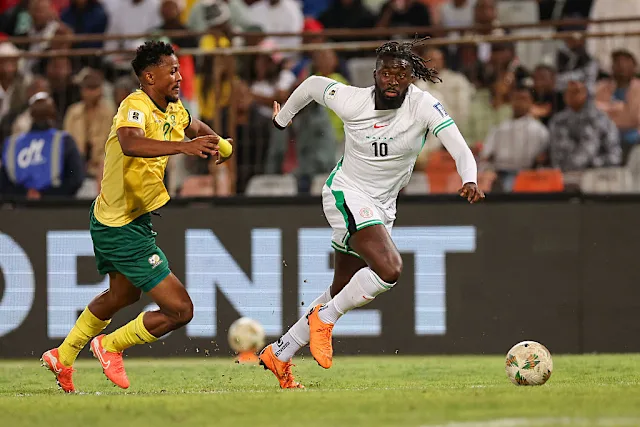African football’s long history of dramatic World Cup qualifiers has been shaped not only by spectacular goals and passionate crowds but also by costly administrative errors and rule breaches that ended in FIFA sanctions. From suspended players sneaking onto the pitch to nationality disputes and overlooked paperwork, the consequences have often been devastating for teams fighting for a place on the world’s biggest stage.
The latest chapter unfolded in March 2025 when South Africa were stripped of a 2-0 victory against Lesotho after fielding Teboho Mokoena, who was ineligible to play. FIFA’s ruling turned the result into a 3-0 defeat, docked Bafana Bafana three points, and imposed a CHF 10,000 fine. The sanction dropped them behind the Benin Republic in Group C and tightened their already challenging path to the 2026 World Cup. This misstep places South Africa among a growing list of African nations whose qualification dreams were dented by off-field mistakes.
Equatorial Guinea’s campaign collapsed after Emilio Nsue, a former Spanish youth international, played without completing his nationality switch. Games were forfeited, points vanished, and their 2026 hopes ended abruptly.
Sudan endured similar heartbreak in the 2014 qualifiers when they fielded suspended player Saif Ali in a win over Zambia. FIFA overturned the victory into a 3-0 defeat, crushing their momentum in a group where every point mattered.
Ethiopia’s story in 2014 was one of both punishment and resilience. Their three-point deduction for using suspended Minyahil Teshome threatened to derail their run, yet they managed to push through to the playoff stage despite the setback.
For Togo, however, the sanctions spelled the end of any realistic chances. When Alaixys Romao played while suspended, their victory over Cameroon was annulled and handed back to the Indomitable Lions, extinguishing Togo’s faint World Cup hopes.
Burkina Faso also fell victim in the same campaign. Their slip in fielding an ineligible player against Congo led to a three-point deduction and fines, halting what could have been their breakthrough journey to a first-ever World Cup.
Gabon faced a similar fate, losing crucial points after an ineligible player appeared in their 2014 qualifiers. In a group featuring Morocco, the punishment effectively ended their chance to compete at the top level.
Nigeria, too, have their entry in FIFA’s sanction archives. In 2017, the Super Eagles fielded Shehu Abdullahi against Algeria despite his suspension. The game ended 1-1 on the pitch, but FIFA awarded Algeria a 3-0 win. Luckily for Nigeria, their earlier results had already secured them a spot at the 2018 World Cup, softening the blow of the ruling.
South Africa’s 2025 punishment highlights how fragile qualification campaigns can be when off-pitch errors overshadow on-field performances. With points at a premium and competition fierce across the continent, such sanctions often determine which nations secure a ticket to the World Cup and which see their hopes vanish.
FIFA’s strict enforcement underscores one message for African teams: administrative discipline can be just as crucial as footballing talent in the quest for global glory.

